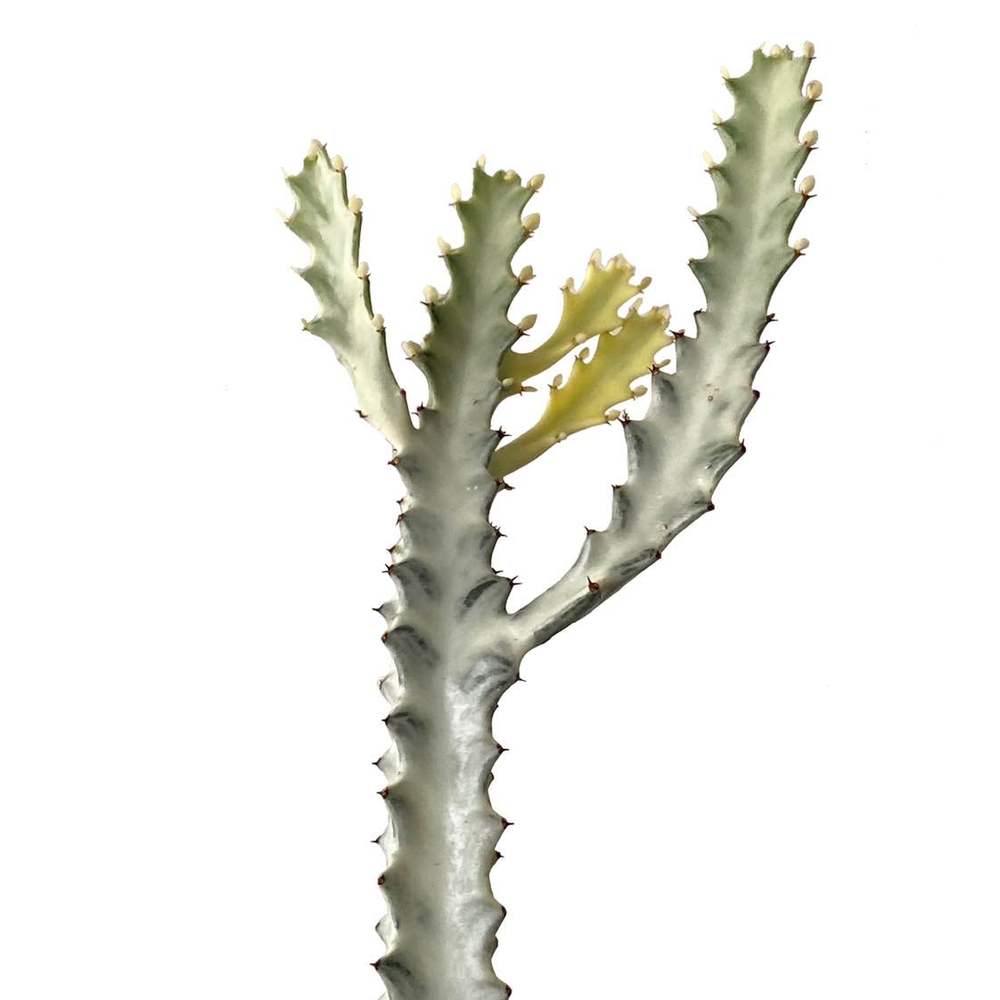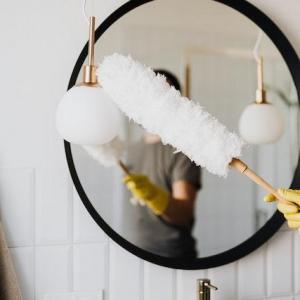Plant Experience
Detail
Euphorbia lactea 'White Ghost' is a striking and very popular cultivar of Euphorbia lactea. It grows up to 10 feet (3 m) tall and it is almost totally white, which lacks the chlorophyll-bearing tissues necessary to produce green stems. Sharp-spined stems grow in candelabra form and have a stark beauty.
How to Grow and Care
Euphorbias are very easy to care for. They require a little pampering to become established, but once they are, they are self-sufficient. In fact, more die from too much care and watering than from neglect. Euphorbias need well-draining soil and lots of sunlight. They are not particular about soil pH, but they cannot tolerant wet soil. Unlike most succulents, Euphorbia does not handle long periods of drought well. It may need weekly watering during the summer. Water whenever the soil is dry several inches below the surface. Water deeply, but don't let them sit in wet soil, which can cause root rot. Add some organic matter or fertilizer to the planting hole. If you are growing them in containers or your soil is poor, feed with a half-strength fertilizer monthly.
Euphorbia can be grown from seed, but they can be difficult to germinate (or even find). It is usually propagated by cuttings. This can be tricky, because of the exuding sap. Rooting hormone is recommended with Euphorbias. They tend to grow problem free, but there are a few pests and diseases to be alert for mealy bugs and spider mites.
Growing Conditions
Soil: Euphorbias need well-draining soil and lots of sunlight. They are not particular about soil pH, but they cannot tolerant wet soil.
Water: Unlike most succulents, Euphorbia does not handle long periods of drought well. It may need weekly watering during the summer. Water whenever the soil is dry several inches below the surface. Water deeply, but don't let them sit in wet soil, which can cause root rot.
Feeding: Add some organic matter or fertilizer to the planting hole. If you are growing them in containers or your soil is poor, feed with a half-strength fertilizer monthly.
Propagating
Euphorbia can be grown from seed, but they can be difficult to germinate (or even find). It is usually propagated by cuttings. This can be tricky, because of the exuding sap. Rooting hormone is recommended with Euphorbias.
How to Grow and Care
Euphorbias are very easy to care for. They require a little pampering to become established, but once they are, they are self-sufficient. In fact, more die from too much care and watering than from neglect. Euphorbias need well-draining soil and lots of sunlight. They are not particular about soil pH, but they cannot tolerant wet soil. Unlike most succulents, Euphorbia does not handle long periods of drought well. It may need weekly watering during the summer. Water whenever the soil is dry several inches below the surface. Water deeply, but don't let them sit in wet soil, which can cause root rot. Add some organic matter or fertilizer to the planting hole. If you are growing them in containers or your soil is poor, feed with a half-strength fertilizer monthly.
Euphorbia can be grown from seed, but they can be difficult to germinate (or even find). It is usually propagated by cuttings. This can be tricky, because of the exuding sap. Rooting hormone is recommended with Euphorbias. They tend to grow problem free, but there are a few pests and diseases to be alert for mealy bugs and spider mites.
Growing Conditions
Soil: Euphorbias need well-draining soil and lots of sunlight. They are not particular about soil pH, but they cannot tolerant wet soil.
Water: Unlike most succulents, Euphorbia does not handle long periods of drought well. It may need weekly watering during the summer. Water whenever the soil is dry several inches below the surface. Water deeply, but don't let them sit in wet soil, which can cause root rot.
Feeding: Add some organic matter or fertilizer to the planting hole. If you are growing them in containers or your soil is poor, feed with a half-strength fertilizer monthly.
Propagating
Euphorbia can be grown from seed, but they can be difficult to germinate (or even find). It is usually propagated by cuttings. This can be tricky, because of the exuding sap. Rooting hormone is recommended with Euphorbias.
Album (6)
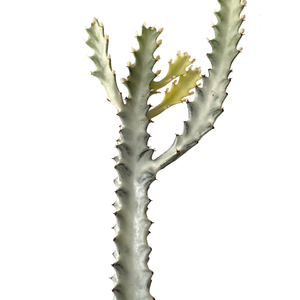
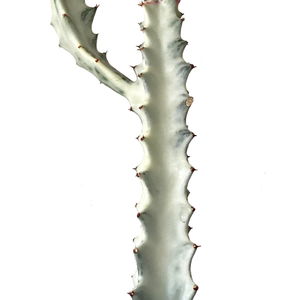
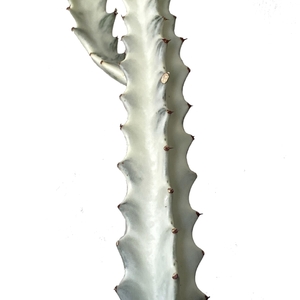
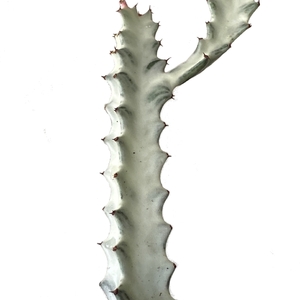
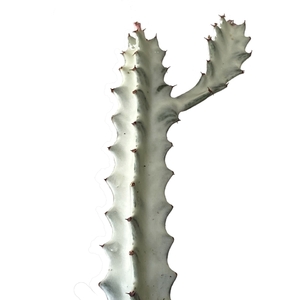
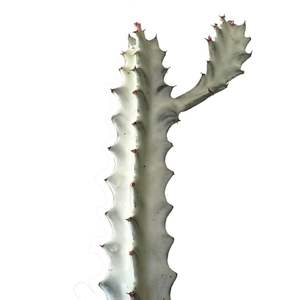
kensong
2020-03-24

Branching out.


kensong
2020-01-18

This is my first growing diary. From Augustame RM30










Elite Article


